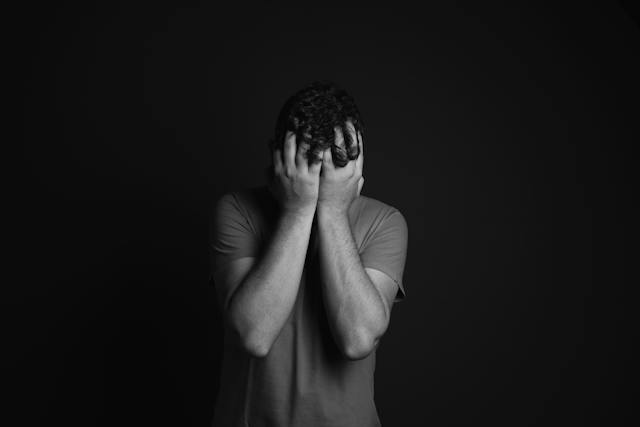
Experiencing a sense of unattractiveness or feeling “ugly” is a widespread phenomenon that many individuals encounter.
This sentiment can arise from diverse sources, such as societal expectations, mental health conditions, and personal history.
In the upcoming blog post, we will delve into the factors contributing to these feelings, explore the mental health conditions linked to self-image, and provide actionable steps to overcome such emotions.
Why do I feel like I’m ugly?
The sensation of feeling unattractive is often influenced by a combination of factors that can impact an individual’s perception of themselves.
These factors include:
Societal standards of beauty
One significant contributor to feelings of unattractiveness is the pervasive influence of societal standards of beauty.
Media, advertising, and cultural expectations often promote a narrow definition of beauty, which may not align with individual differences.
Comparisons to these ideals can lead to a sense of inadequacy, fostering the belief that one falls short of accepted norms.
Personal experiences
Individual experiences play a crucial role in shaping self-perception.
Past encounters, especially those involving criticism or rejection based on physical appearance, can contribute to a negative self-image.
These experiences may create lasting impressions and affect one’s sense of attractiveness, even if they do not align with objective reality.
Mental health conditions
Certain mental health conditions, such as body dysmorphic disorder (BDD) or low self-esteem, can intensify feelings of unattractiveness.
BDD, in particular, involves obsessive thoughts about perceived flaws in physical appearance, leading to significant distress.
Understanding the role of mental health in shaping self-perception is crucial for addressing and overcoming these feelings.
Media influence and negative self-talk
The constant exposure to curated images in media and the prevalence of social comparisons can exacerbate feelings of unattractiveness.
Negative self-talk, fueled by unrealistic standards, can create a cycle of self-doubt.
Developing media literacy and practicing self-compassion are essential in mitigating the impact of external influences.

Mental health conditions associated with self-image
Various mental health conditions can significantly impact an individual’s self-image, often contributing to feelings of unattractiveness.
These includes:
Body Dysmorphic Disorder (BDD)
BDD goes beyond normal concerns about appearance.
Individuals with BDD experience intense distress related to perceived flaws that may be minor or nonexistent.
This preoccupation can lead to compulsive behaviors, such as excessive grooming or seeking reassurance, to alleviate the distress.
Understanding the impact of BDD on self-perception is crucial for those affected, as seeking professional help is often necessary for effective management.
Depression and anxiety
Depression and anxiety are two common mental health conditions that can distort an individual’s perception of their own attractiveness.
In the grip of depression, individuals may struggle with feelings of worthlessness and a pervasive sense of being unattractive.
Anxiety, on the other hand, can magnify concerns about judgment and appearance-related fears, contributing to negative self-image.
Distorted self-perception
Mental health conditions can create a distorted self-perception, where individuals may struggle to see themselves objectively.
This distortion often involves a heightened focus on perceived flaws or shortcomings, leading to a persistent sense of unattractiveness.
Recognizing these distortions is a crucial step toward seeking professional assistance and adopting strategies for mental health management.
How do I stop feeling like I’m ugly?

Overcoming feelings of unattractiveness can be a challenging but achievable process.
Here are some practical steps to help improve self-image:
Challenge negative thoughts
Start by actively recognizing and challenging negative self-talk.
Replace self-critical thoughts with positive affirmations.
This may involve consciously reframing detrimental statements about your appearance into more constructive and compassionate language.
Seek support
Open up to a trusted friend, family member, or mental health professional about your feelings.
Sharing your experiences with someone you trust can provide valuable perspectives and emotional support, fostering a sense of connection and understanding.
Limit social media exposure
Take breaks from social media or curate your feed by unfollowing accounts that perpetuate unrealistic beauty standards.
Social media can often contribute to feelings of inadequacy through constant comparison.
Redirect your focus towards real-life connections and engage in activities that bring you genuine joy and fulfillment.
Engage in self-care
Prioritize activities that contribute to your overall well-being, both physically and mentally.
Incorporate regular exercise, indulge in hobbies you enjoy, and explore forms of self-expression.
Engaging in self-care not only boosts your mood but also reinforces a positive relationship with yourself.
Professional help
If negative feelings persist, consider seeking therapy or counseling.
A mental health professional can assist in identifying underlying issues contributing to feelings of unattractiveness.
Therapy provides a safe space to explore these emotions, develop coping strategies, and work towards building a healthier self-image.
Cultivate gratitude
Focus on the aspects of yourself that you appreciate and value.
Practicing gratitude for your unique qualities and strengths can shift the narrative from perceived shortcomings to acknowledging the positive aspects of your identity.
Set realistic goals
Establish realistic and achievable goals for personal growth.
Celebrate small victories along the way, recognizing that progress takes time.
Setting realistic goals provides a sense of accomplishment and reinforces a positive self-perception.
Mindfulness and meditation
Incorporate mindfulness and meditation into your routine.
These practices can help center your thoughts, reduce stress, and promote a more positive mindset.
Mindfulness encourages living in the present moment, fostering self-acceptance.

Conclusion
Experiencing feelings of unattractiveness is a shared human experience.
However, it’s crucial to acknowledge that beauty is both diverse and multifaceted.
By comprehending the factors influencing negative self-image and actively engaging in measures to boost self-esteem, individuals can foster a more positive and realistic perception of their attractiveness.
FAQs
Feeling unattractive can be a symptom of mental health conditions such as depression, anxiety, and body dysmorphic disorder. It’s important to seek professional help if these feelings are persistent and affecting your well-being.
Yes, societal standards of beauty can significantly influence self-image. It’s important to critically evaluate these standards and recognize the diversity of beauty.
Listen non-judgmentally, offer reassurance, and encourage them to seek professional help if needed. Supporting a friend through their struggles with self-image can make a meaningful difference.


